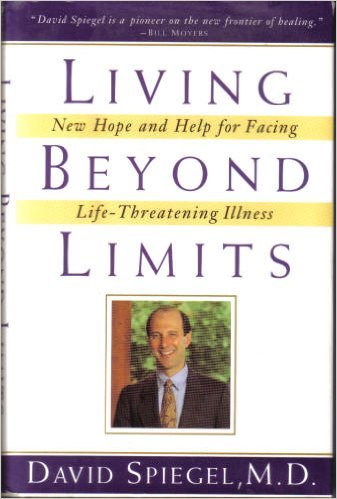Synopsis
Based in part on the author's landmark study which demonstrated the benefits of group therapy for cancer patients, this study explores the interaction of mind and body in the healing process
Reviews
Solid, research-based study of how to make the most out of life when faced with death. Spiegel (Psychiatry/Stanford) received wide public attention when Bill Moyers's Healing and the Mind program devoted a segment to his group-therapy work with terminal cancer patients. Spiegel conducts research that provides advanced cancer patients weekly group therapy in which they're helped to confront their disease, face the inevitability of dying, and reorder their life priorities. These patients experience less pain, anxiety, and depression than similar patients not in group therapy, and follow-up has revealed that they live significantly longer as well. The voices of men and women in Spiegel's group therapy programs are heard here as the author shares his findings, covering such topics as weathering the diagnosis; managing anxiety and anger; communicating feelings; getting help from friends, family, and support groups; dealing with doctors; facing death; and controlling pain. For the latter, he recommends hypnosis, or ``focused attention,'' and he describes how the same can be used to control anxiety and nausea as well. Spiegel rejects the idea of physician-assisted suicide, and he scorns the simple mind-over-matter approach that ends up blaming the patient for the illness. For Spiegel, coping with illness is both a physical and a mental process, because the body and the mind are interactive. Overall, he finds the ideal approach to illness to be one that combines modern technology with compassionate human support. Practical, caring, and strongly recommended. -- Copyright ©1993, Kirkus Associates, LP. All rights reserved.
Spiegel wrote a landmark medical study demonstrating that women with breast cancer who received standard medical care and met weekly in group therapy reported less anxiety, depression, and pain and lived on average twice as long as women who received no social support. (Researchers do not know why, though, and are now conducting further research.) Here he speaks to nonspecialist readers. He reports on the original study and more recent ones and presents the experience of living with serious illness, from the time of first diagnosis through the anxieties of treatment to the problems of living with the threat of dying. He also explores the activities that are important to successful coping: finding new networks of support, dealing directly with fears of dying, reviewing and reordering life priorities, strengthening family relationships, improving communication with doctors, and controlling pain and other symptoms. Intended to help cancer patients and their families, his work will be meaningful to those coping with other serious and chronic illnesses, too. Karen Graves
Basing his conclusions on scientific research and clinical experience, the author discusses the connection between one's mental life and physical health. In his own study of women with advanced breast cancer who attended group therapy, Spiegel found that those who received group support were not only emotionally better off than the control group but on average survived twice as long. In contrast to those who advocate such approaches as visualizing away one's disease, the author makes no claim to cure illness. Rather, he aims at having patients improve the quality of their lives by acknowledging the seriousness of their illness. The author's single deviation in an otherwise interesting and useful book is his needlessly emotional outburst against suicide. For large academic and public libraries. Previewed in Prepub Alert, LJ 6/1/93.
- Bonnie Hoffman, Stony Brook, N.Y.
Copyright 1993 Reed Business Information, Inc.
"About this title" may belong to another edition of this title.
